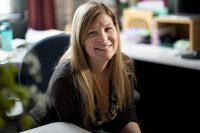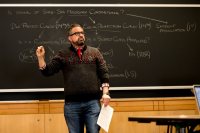
Associate Professor of Mathematics Katy Ott was the first teacher to introduce Nerea Barranco Aramburu ’25 to the experience of learning through small group collaboration. Ott also introduced Arumbu to the idea of learning by revising assignments — many times over, if necessary.
One result is constant feedback, Aramburu says, which helps students feel more included in the classroom, which makes learning math less stressful and more meaningful — even fun. “It was completely different. And it turns out it really works.”
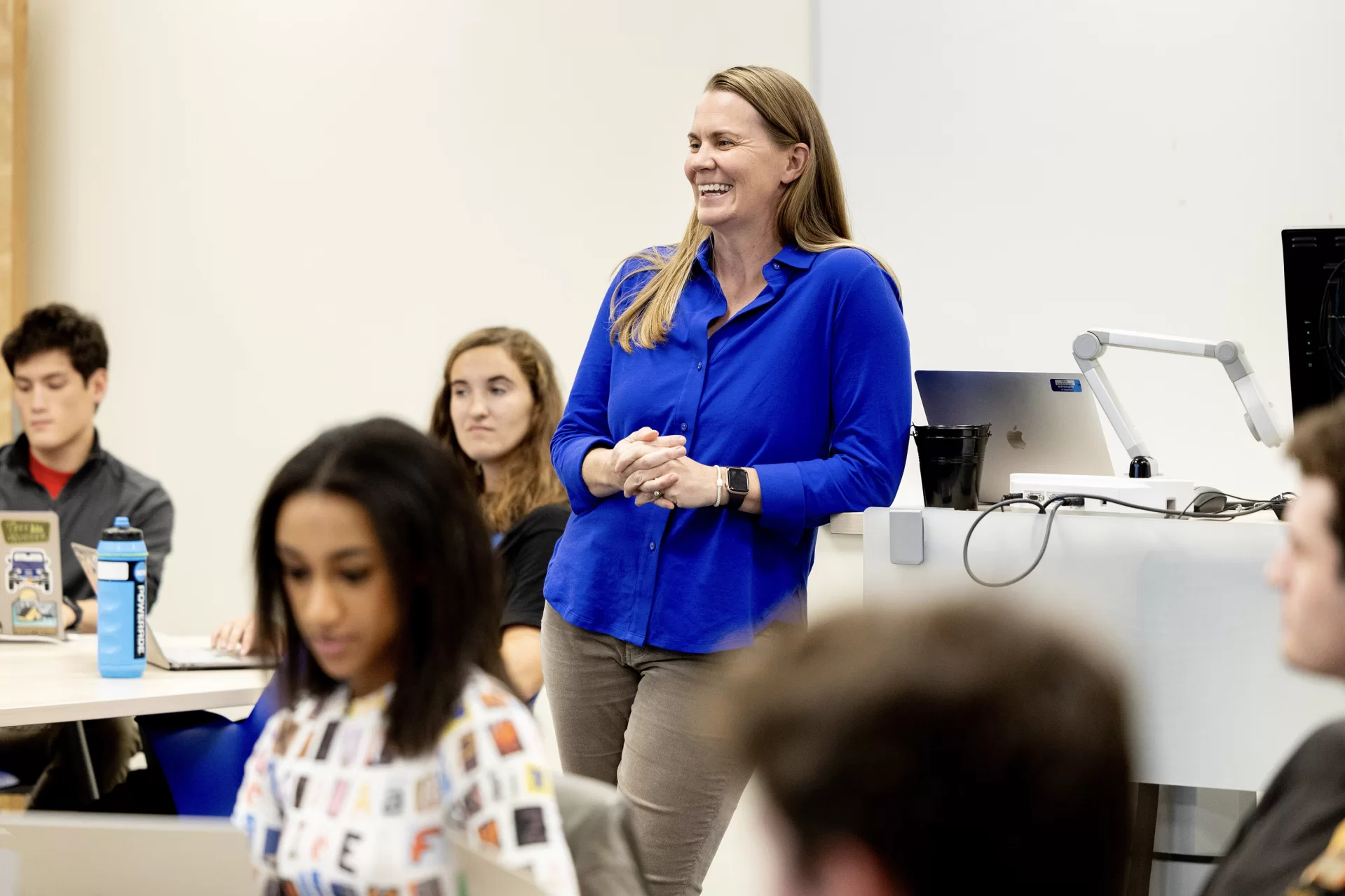
Ott’s inclusive approach to her craft, her embrace of innovations in teaching, and the positive response from students adds up to an equation for teaching success — and a big reason she earned the college’s 2023 Kroepsch Award for Excellence in Teaching, the college’s highest award for teaching.
Students and alumni who nominated Ott for the award praise Ott’s teaching talents. “I learn more than ever before while remaining calm,” said one student. “She keeps stress low but learning at a high,” said another, adding a humorous note about Ott’s “baffling” ability to make math interesting in a low-stress environment, which “almost tricks you into understanding the subject.”
Kroepsch Nominations
For alumni and students, nominating a faculty member for the Kroepsch Excellence in Teaching Award is an opportunity to reflect on a dedicated and innovative professor who set the bar high, taught you how to think about the world — and yourself — in new ways; and created learning experiences that sparked a desire for knowledge and understanding.
Ott is part of a cohort of willing Bates faculty members who are shifting their pedagogy — in dramatic fashion, in some cases — to make their classrooms and the material they teach more accessible to students of all backgrounds.
The shift means taking on, and disrupting, longstanding attitudes about teaching, including the “deficit mindset,” says Lindsey Hamilton ’05, director of the Center for Inclusive Teaching and Learning.
With a “deficit mindset,” an educator believes that a students’ lack of skill or knowledge needs to be fixed or filled in. It leads students very often to say, “I can’t do this,” Hamilton says. A more productive approach, which Ott uses, is to “coach them to say, ‘I’m still learning how to do this.’ It’s a minor thing. But it’s impactful.”
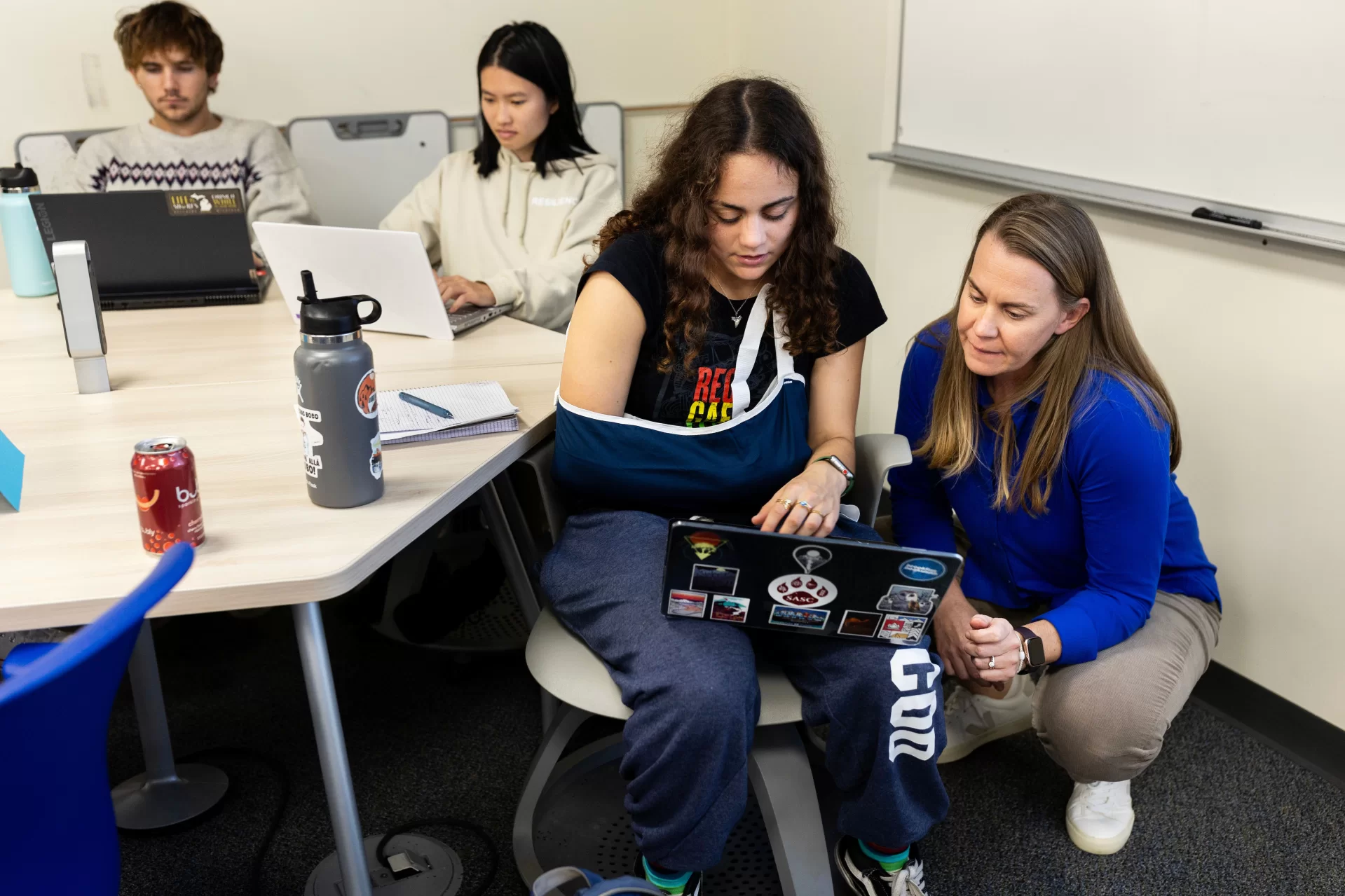
Hamilton says Ott “really takes the time to get to know her students and talk to them about all the ways they are thinking mathematically, about how they are mathematicians. And we know from all sorts of literature that if students feel they belong in the classroom, if they are happier in the classroom, they do better, they learn better, their grades show gains in their knowledge.”
Small-group collaboration is standard for Ott, but it does not start with her saying to her students, “Find a partner.” A mountain of research, says Hamilton, shows that when the instructor places students into groups, it benefits introverted, neurodivergent, and those from minoritized groups by removing the stress of finding a group partner or navigating social circles. It keeps the focus on the learning.
“Almost everything I do now is revision without penalties. Learning math is not about memorizing or performing under pressure. It’s about deep thinking and being persistent, making space to understand things.”
Associate Professor of Mathematics Katy Ott
Another of Ott’s approaches that surprises Aramburu as she arrived at Bates from Spain is the idea of unlimited revisions of homework. “In Spain I would submit something, get a grade, and move on,” she says. Same goes for most math teaching the U.S., too.
In Ott’s classroom, “I either get it, or I’m not there yet and I do it again, or I almost get there, and I do it again. It makes you a better mathematician, and I actually enjoy math more because I learn from my mistakes now.”
“Almost everything I do now is revision without penalties,” Ott says. “Learning math is not about memorizing or performing under pressure. It’s about deep thinking and being persistent, making space to understand things. I’m trying to help them put their finger on where they’re struggling. Where are the boundaries of their understanding? Don’t hide because it’s a failure. Know what to work on.”
While allowing unlimited revisions might seem, to traditionalists, less rigorous, the advantages are irrefutable, Hamilton said. But it also involves an immense time commitment by the instructor. “Katy got a big laugh in her talk with faculty when she said, ‘Hey, I’m not going to lie. It’s also a ton of work,’” Hamilton said. “Katy is committed.”
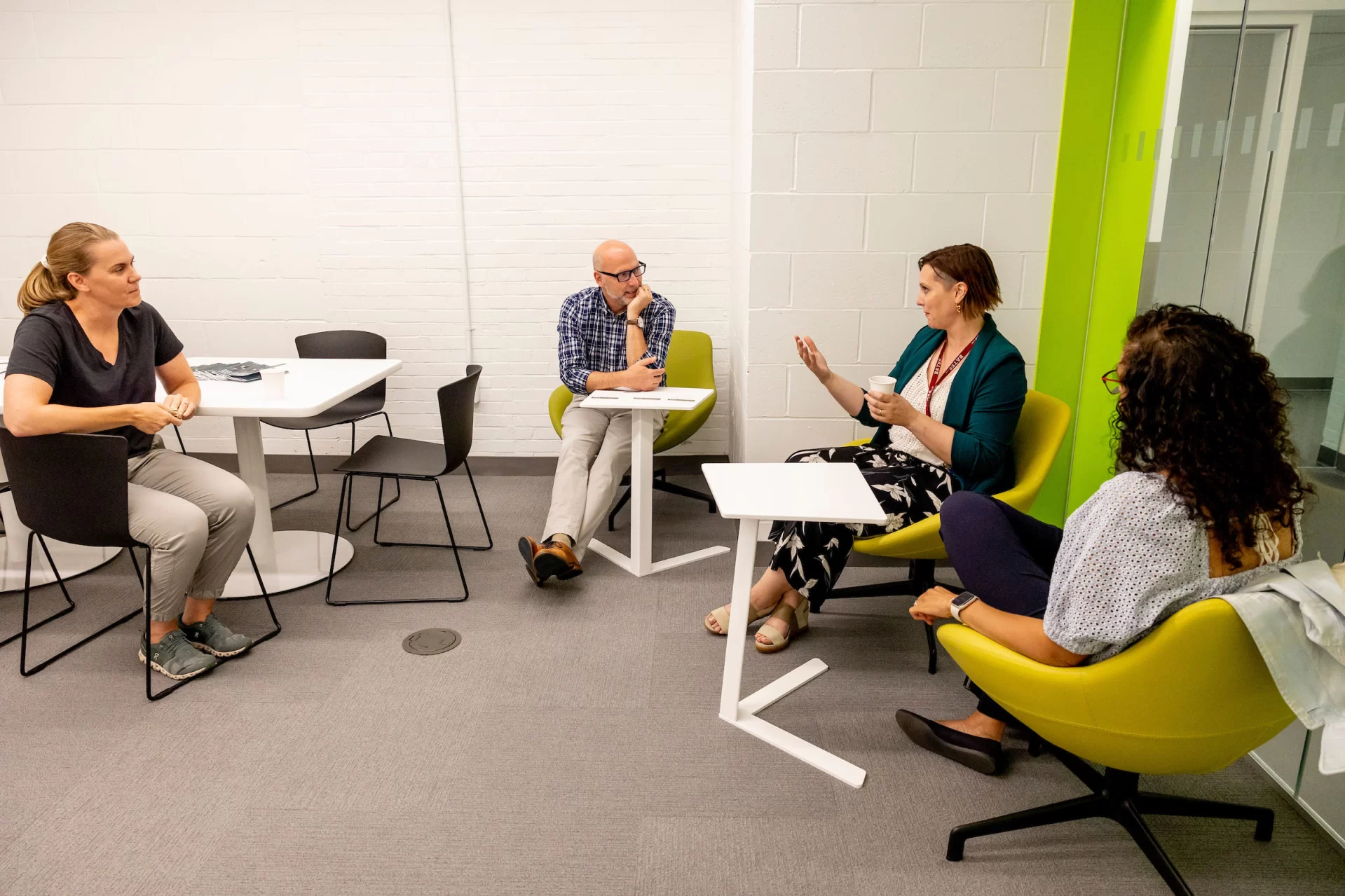
Ott, who also credits support from the Howard Hughes Medical Institute Inclusive Excellence Initiative for improving her teaching, says that when students make mistakes and are allowed to revise and revise, the process can illuminate parts of a student’s unique approach to problem solving.
When students get a clearer picture of what works for them personally, she said, they make progress. Educators should help students embrace their unique skill set, not punish them for it.
Like many of her students, Ott said she came from a traditional math background where her high school instructors lectured at the board, then expected students to prove their comprehension by scoring well on timed exams. The final grade was the average score of all the exams. That approach was more or less repeated throughout her undergraduate and graduate math courses.
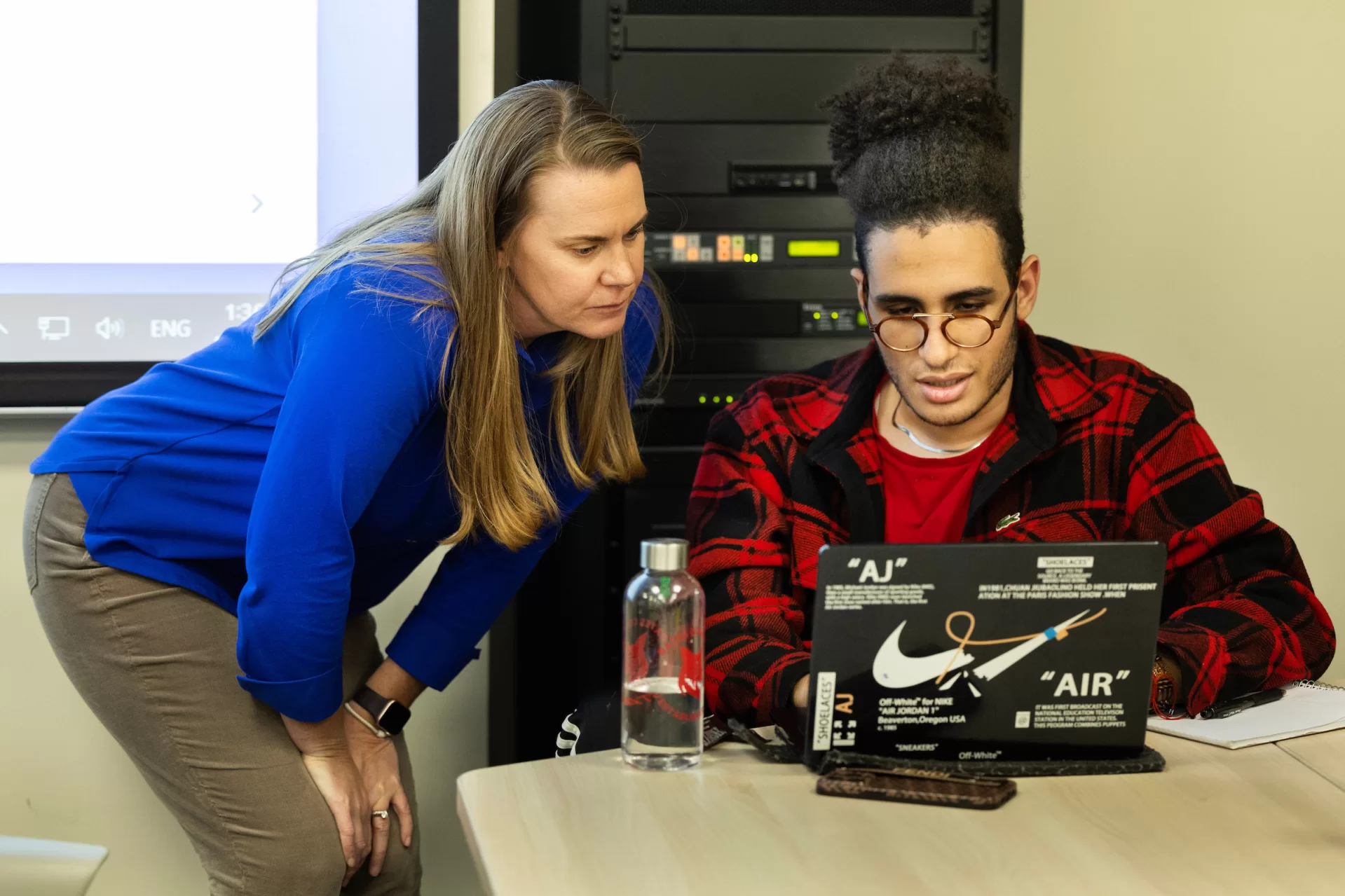
But when Ott began doing research in graduate school, en route to earning a Ph.D. in mathematics at the University of Virginia in 2008, she saw another way. She recognized that there was a lot to learn along the road to finding a correct answer.
Using that experience, she tries to mimic the process of mathematical discovery. Her grading is now focused on encouraging students to revise and reflect on their work, rather than on test scores. Her classes celebrate communal collaboration, rather than hierarchy or “star” students.
An infamous contributor to the deficient mindset in education is the timed exam because students who perform poorly are often seen as lacking what it takes. “I was very lucky in that I was predisposed to liking math. So none of that turned me off. And I did well on timed exams. But I don’t think that should be an entrance to mathematics because, in the end, it’s not a skill you need,” Ott said.
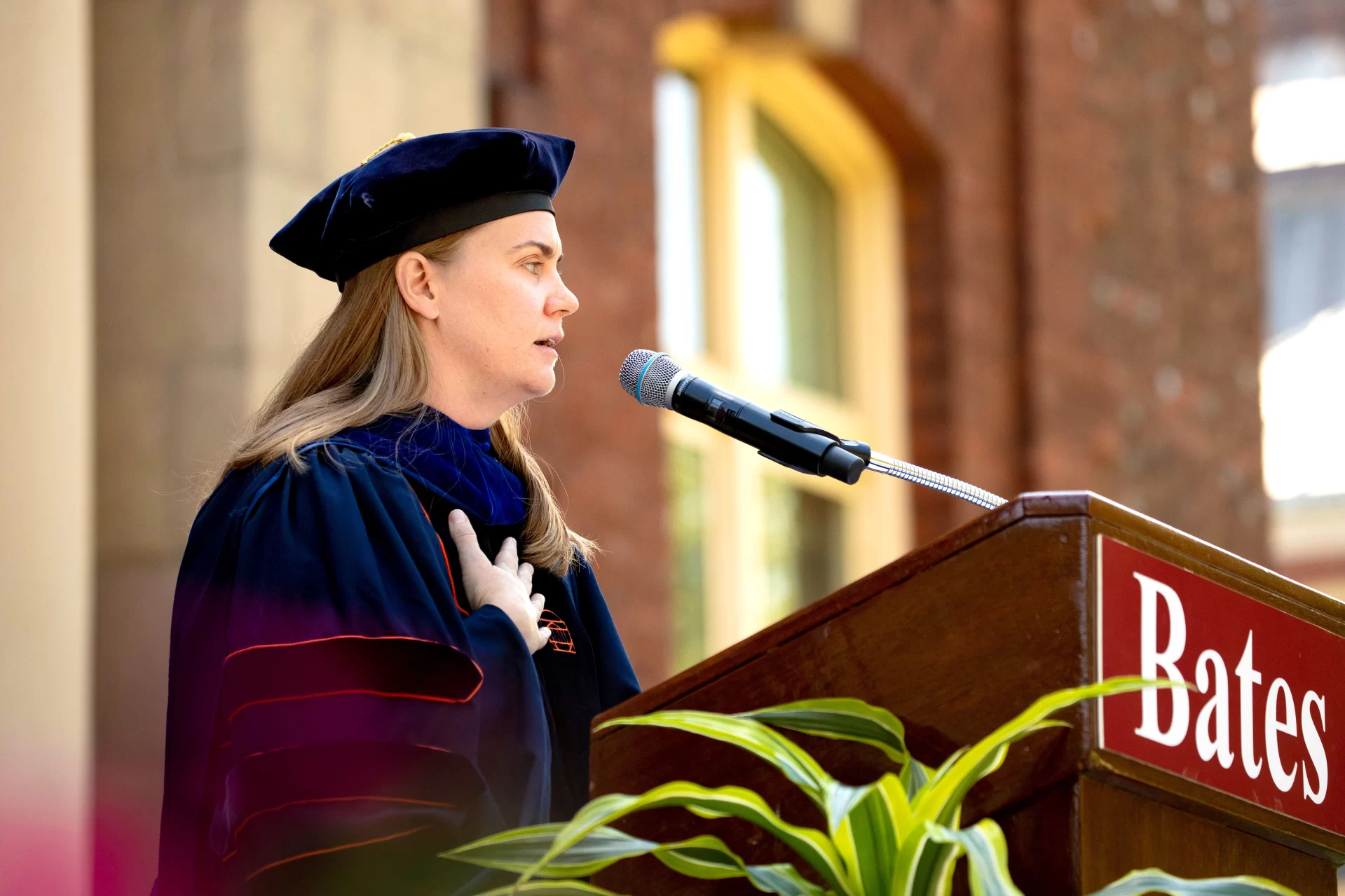
“It’s unfortunate for so many who really enjoy math, but are left out, turned away, or lose interest because of these high-stakes exams. I think if a class has clear learning objectives and students can show they’ve met those learning objectives, in my view, that deserves a good grade.”
Today, Ott watches carefully for a defeatist mindset among her students, especially those who didn’t benefit from a strong math background, or those who see themselves lacking problem-solving skills. It’s her undying quest to put equity at the forefront of teaching.
“Mathematics is dominated by men and the representation of Black and Hispanic Americans is very, very low,” Ott said. “I’ve gotten a lot of professional development at Bates to help create an inclusive classroom. At the beginning it all felt really overwhelming. It’s this huge systematic problem. But I started making small, local-type changes, and then adding more and more.”
One class she teaches that focuses on the issue is “Mathematics for Social Justice,” in which students look at problems in society through the lens of math. It is a class Ott helped to co-created in 2021 with colleague Adriana Salerno, professor of mathematics. The ability to do math is a form of power, Ott said. “In our current society, everything is about data. Knowing math and not being afraid of it puts you in a position of power.”
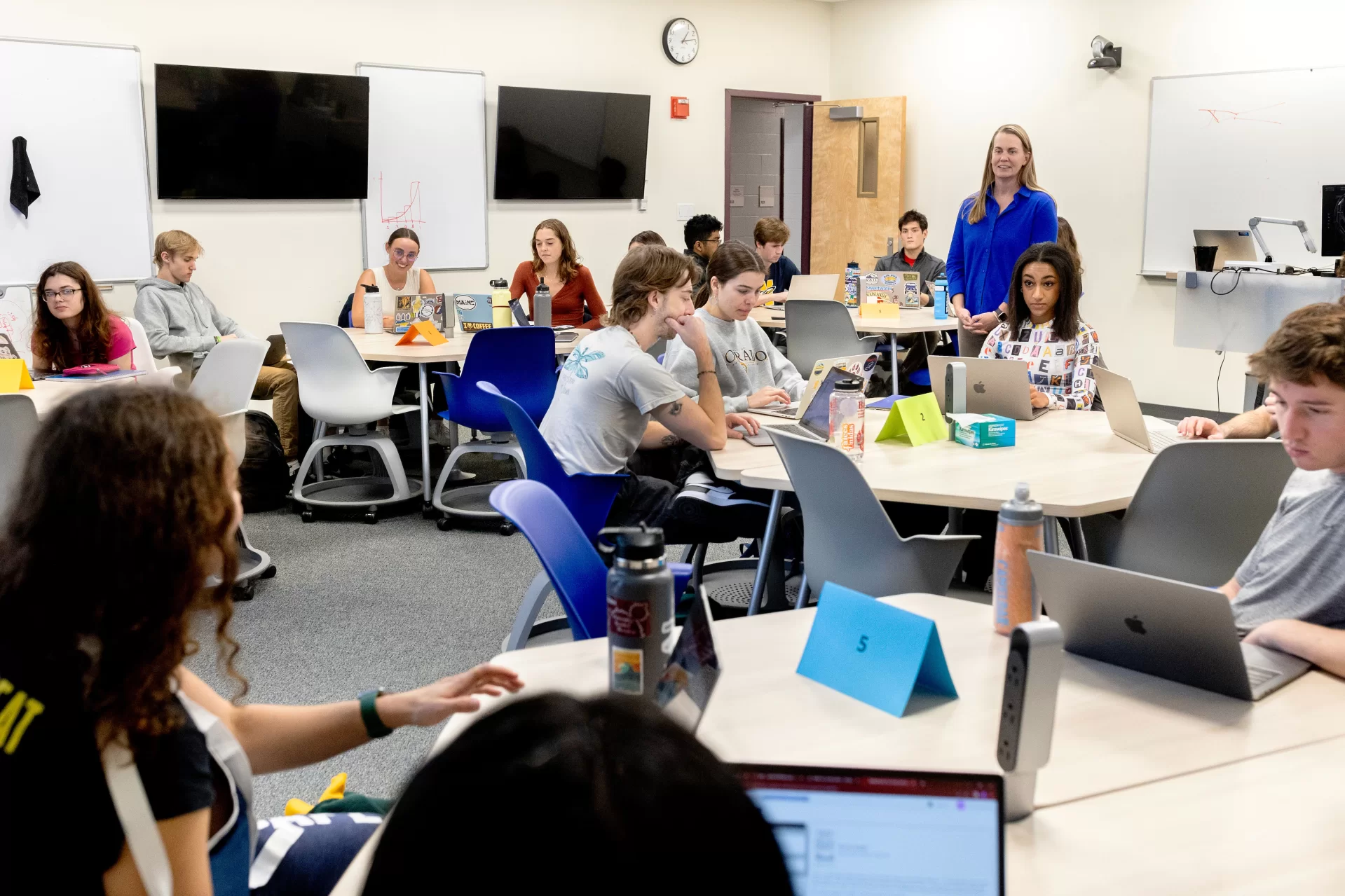
For Christian Cabello ’25 of La Canada Flintridge, Calif., taking Ott’s social justice course drove home how important and valuable math is for navigating daily life. He’s been able to use the skills gained from the course to help with an ongoing project that seeks to give a Hispanic community in Providence, R.I., better access to online information on critical public issues in their community.
Cabello got connected to the project through the project’s founder, Carrie Diaz Eaton, an associate professor of digital and computational studies at Bates.
“My grandparents on my dad’s side are from a Latin American country, so I can relate to the older Latin-American community not knowing really how to use technology and not knowing what is accessible to them,” said Cabello, a math and Hispanic studies double major. “We’re trying to make them more aware of these resources, to provide really basic information that is easy to navigate.”
Cabello calls Ott’s approach to teaching a winning formula, and he’s grateful to have benefited from Ott’s insights and guidance.
“She’s aware of what her students are capable of even if the student doesn’t know that,” he says. “She really wants us to be the best version of ourselves.”
